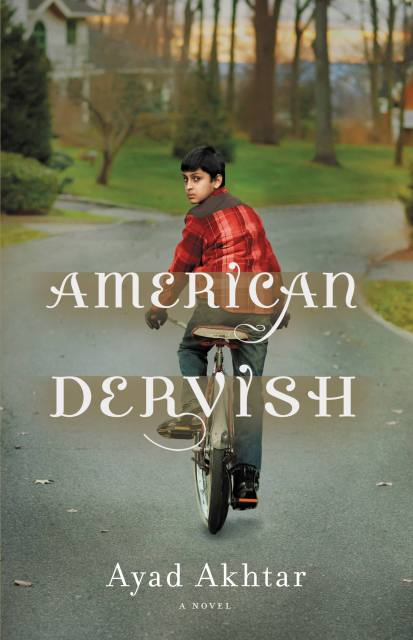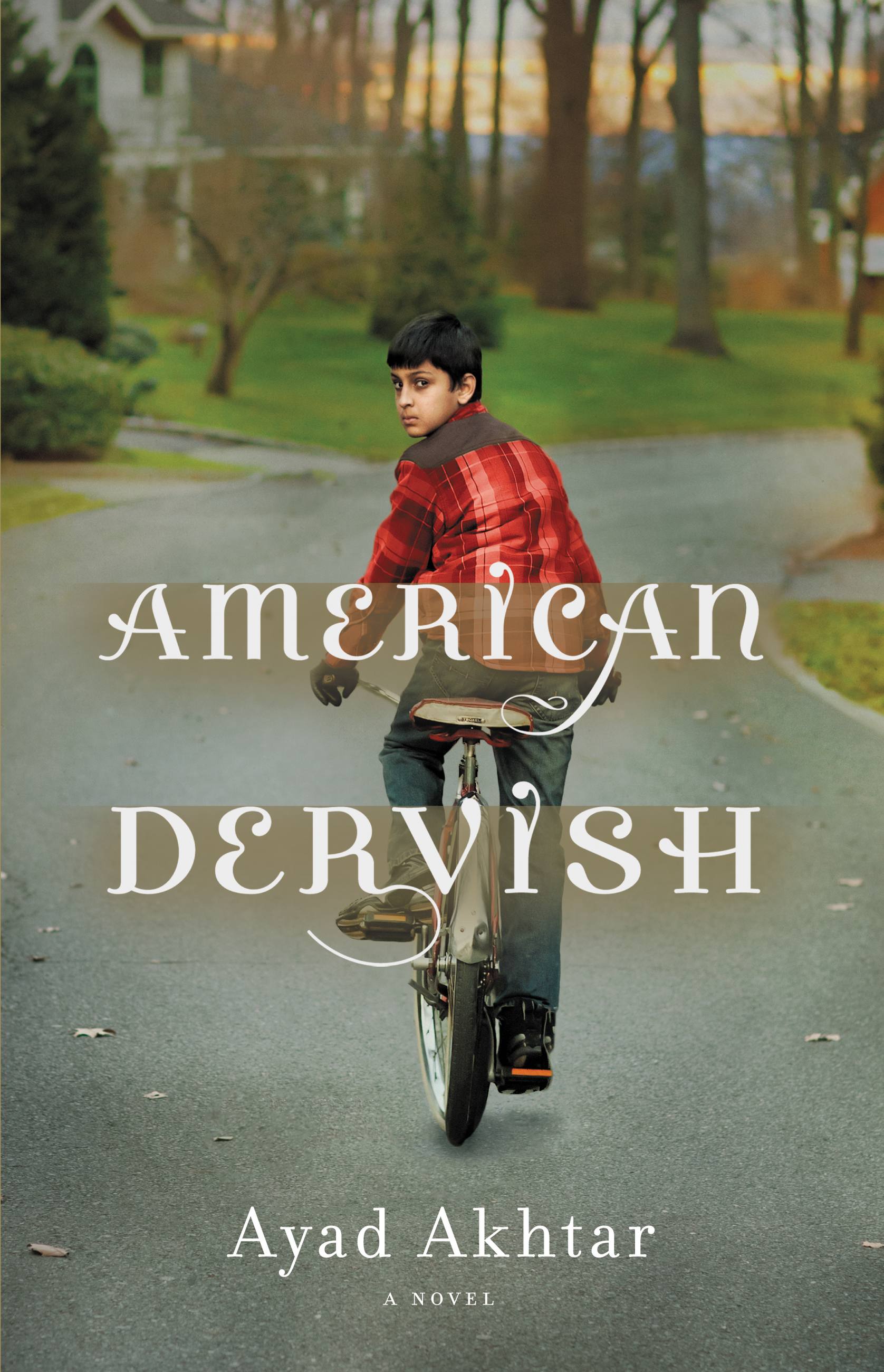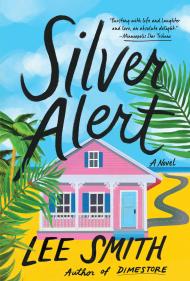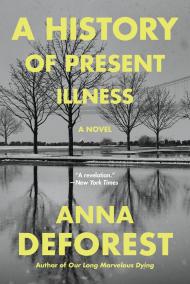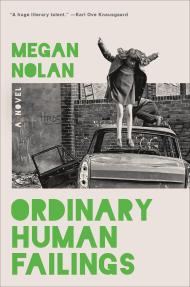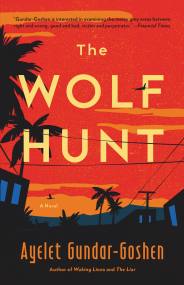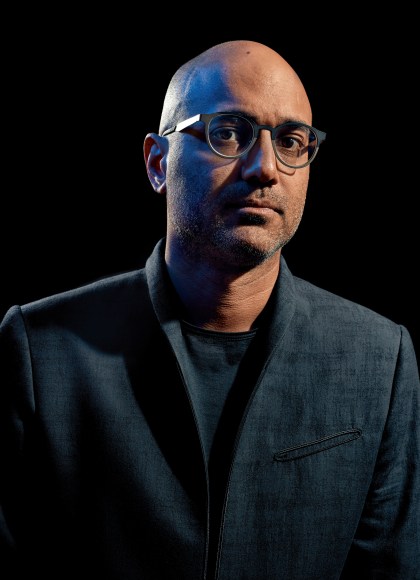Promotion
Use code MOM24 for 20% off site wide + free shipping over $45
American Dervish
A Novel
Contributors
By Ayad Akhtar
Formats and Prices
Price
$9.99Price
$12.99 CADFormat
This item is a preorder. Your payment method will be charged immediately, and the product is expected to ship on or around January 9, 2012. This date is subject to change due to shipping delays beyond our control.
Also available from:
Hayat Shah is a young American in love for the first time. His normal life of school, baseball, and video games had previously been distinguished only by his Pakistani heritage and by the frequent chill between his parents, who fight over things he is too young to understand. Then Mina arrives, and everything changes.
American Dervish is a brilliantly written, nuanced, and emotionally forceful look inside the interplay of religion and modern life.
Genre:
-
"Whether you believe religion is a precious gift from God or the greatest scourge of mankind, you will find yourself represented in these pages. With brilliant storytelling and exquisitely balanced points of view, Ayad Akhtar creates characters who experience the rapture of religion but also have their lives ripped apart by it."Manil Suri, author of The Death of Vishnu and The Age of Shiva
-
"Akhtar's graceful and moving novel is a story most immigrants can relate to, regardless of background, but resonates particularly with first generation Muslim-Americans who, in this interconnected world, struggle daily with both a clash of cultures and (today) a deep suspicion of, if not prejudice against the faith of their forefathers. But apart from that, it is a wonderful story of coming to terms with who one is, and who society expects one to be-and absolutely everyone can relate to that."Hooman Majd, author of The Ayatollah Begs to Differ and The Ayatollahs' Democracy
-
"A compelling debut with a family drama centered on questions of religious and ethnic identity.... Akhtar, himself a first-generation Pakistani-American from Milwaukee, perfectly balances a moving exploration of the understanding and serenity Islam imparts to an unhappy preteen with an unsparing portrait of fundamentalist bigotry and cruelty.... His well-written, strongly plotted narrative is essentially a conventional tale of family conflict and adolescent angst, strikingly individualized by its Muslim fabric. Hayat's father is in many ways the most complex and intriguing character, but Mina and Nathan achieve a tragic nobility that goes beyond their plot function as instruments of the boy's moral awakening.... [The story's] warm tone and traditional but heartfelt coming-of-age lesson will appeal to a broad readership. Engaging and accessible, thoughtful without being daunting: This may be the novel that brings Muslim-American fiction into the commercial mainstream."Kirkus Reviews, Starred Review
-
"Loss of innocence-sexual, of course, but also cultural and religious-is the subject of Ayad Akhtar's poignant American Dervish, set in a Muslim-American community in the early 1980s.... With characters full of contradictions and complexity, this debut novel is refreshing for its lack of the political and religious hand-wringing so common in the post-9/11 world. But it's also resonantly familiar in its depiction of youthful obsession and the desire to belong."Sarah Nelson, O, the Oprah Magazine
-
"American Dervish is an intelligent, courageously honest book about religion that never bogs down in dogma, proscriptions, or easy answers. The characters are memorable and alive, most of all the narrator's fierce, tough-minded mother and gorgeous, tragically principled 'auntie,' who in different ways help the young narrator on his difficult path of doubt, faith, and, hopefully, happiness. The story is as stirring and thought-provoking as it is compulsively page-turning."Kate Christensen, author of The Astral and The Great Man
-
"[A] heartfelt first novel.... Akhtar himself is the son of Pakistani immigrants who settled in Wisconsin, and his knowing take on the complexities of that particular experience feels fresh.... The book's central tension between secularism and religiosity obviously has broader significance, and Akhtar explores these issues with admirable nuance.... Akhtar's characters drive a story that's compelling and believable even at its most alien. American Dervish offers a rich look at a nearby world that many Americans don't know nearly enough about."Rob Brunner, Entertainment Weekly
-
"What a pleasure to encounter a first novel as self-assured and effortlessly told as Ayad Akhtar's American Dervish. Mr. Akhtar, a first-generation Pakistani-American, has written an immensely entertaining coming-of-age story set during the early 1980s among the Pakistanis in the author's hometown, Milwaukee.... Mr. Akhtar's astute observations of the clashes between old world and new, between secular and sacred, among immigrants might seem familiar to readers of both contemporary and classic literature.... But what distinguishes Mr. Akhtar's novel is its generosity and its willingness to embrace the contradictions of its memorably idiosyncratic characters and the society they inhabit.... Mr. Akhtar is particularly adept at depicting the tensions between Jews and Muslims in pre-Sept. 11 America.... Yet for all the rage and satire contained within its pages, Mr. Akhtar's novel is far from an antireligious screed in the tradition of Christopher Hitchens. It is instead admirably restrained, deeply appreciative of some aspects of Islam and ultimately far more interested in raising provocative questions than in definitively answering them.... [A] charming debut."am Langer, The New York Times
-
"Akhtar dazzles with his debut novel about a Muslim family in pre-9/11 America.... Ambitious but accessible, playwright Akhtar's engaging first novel tells a particularly fresh and touching coming-of-age story that illuminates the everyday lives of Muslims in America and brings new resonance to universal questions of belief and belonging."Helen Rogan, People, 3 ½ stars
-
"[An] astutely observed novel.... Akhtar, a promising young playwright publishing his debut novel, embraces the contradictions - spiritual, sexual, cultural - of growing up Muslim in America in American Dervish. Hayat's story of betrayal comprises the meat of the novel, which will leave a hole in the heart of the biggest sinner. Whether you are Muslim, Jewish or Christian, this coming-of-age tale hits home.... Intelligently written, emotionally charged, American Dervish is a loss-of-innocence tale that will leave readers pondering the state of their own faith.... it's likely that Akhtar's novel will be on many 2012 best-books lists, including that of the Express-News."Steve Bennett, San Antonio Express News
-
Ayad Akhtar's wonderful first novel tells a quintessentially American coming-of-age story: The child of immigrants struggles to find a place in his life for the traditions and beliefs of his ancestral homeland in a new world of broader possibilities that are both enticing and threatening. Although the main narrative unfolds in the early 1980s, it speaks to issues that collectively preoccupy us even more today... American Dervish so richly depicts a wide variety of humanly inconsistent and fallible characters that it feels reductive to call it a Muslim American novel, yet it is impossible to call it anything else because it is steeped in the tenets of Islam and a fierce debate over their deepest meaning....Akhtar's complicated, conflicted characters are not helpless victims; they make irrevocable mistakes and do dreadful things, but Akhtar encourages us to understand and forgive...The vivid particulars of [Hayat's] spiritual quest and emotional confusion embody universal experiences: growing up, learning to accept the faults of those you love (and your own), achieving an identity nourished by your roots but shaped by your individual needs and aspirations. Akhtar's poignant and wise debut announces the arrival of a generous new voice in American fiction."Wendy Smith, The Washington Post
-
"American Dervish is set to become The Help of 2012."Beth Kephart, The Chicago Tribune
-
"In this remarkably self-assured, infectiously readable debut novel, Ayad Akhtar beams readers directly inside Hayat's young mind. His growing love for Mina - as his revered 'auntie,' focus of his budding sexual interest, and teacher of Islam through nightly Koran readings - feels sweet yet fraught. After listening to her read these lyrical holy verses, Hayat floats back to his room 'my heart softened and sweet, my senses heightened.' Of course it's headed toward disaster, but Akhtar lets the ensuring calamities unfold without melodrama. Along the way, Hayat learns that his beloved adults' worst flaws sometimes coincide with what is most lovable and laudable about them, and that faith, mystery, and love have less to do with any religious text than with the human heart."Kate Tuttle, The Boston Globe
-
"Akhtar is a well-experienced, wonderful writer who approaches a difficult subject confidently and without any pretense.... American Dervish is one of those rare (and, at times, uncomfortable) books that deserves a literary award."Melissa Smith, Book Reporter
-
"American Dervish is a strong candidate for the title of the Great Muslim American Novel."Mark Athitaki, AARP.com
-
"[D]isturbing, complex and....fascinating... American Dervish is nuanced and full of surprises, conveying the dilemmas many people - not just Muslims - face when they immigrate to the United States."Repps Hudson, St. Louis Post-Dispatch
- On Sale
- Jan 9, 2012
- Page Count
- 384 pages
- Publisher
- Little, Brown and Company
- ISBN-13
- 9780316192828
Newsletter Signup
By clicking ‘Sign Up,’ I acknowledge that I have read and agree to Hachette Book Group’s Privacy Policy and Terms of Use
